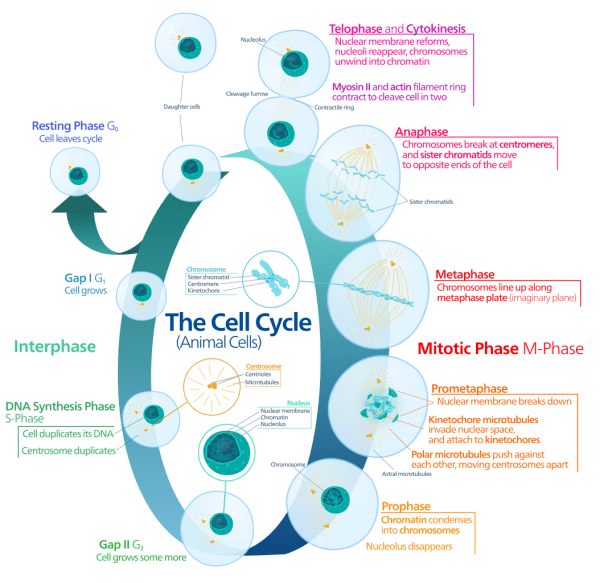Basics of the Cell Cycle
The cell cycle describes the lifecycle of cells through a series of events leading to duplication of their DNA (DNA replication) and division of cytoplasm and organelles to produce two daughter cells from a single mother cell. It is necessary for the normal development of the cell and the organism as a whole.

Stages of the Cell Cycle
The cell cycle can be divided into 5 stages:
- G1 phase
- S phase
- G2 phase
- M phase
- Cytokinesis
The first 3 phases are generally classified as interphase.
There is a G0 phase which is a resting stage as the cells here undergo no cell division. It is usually between the cytokinesis and G1 stages.
G1 phase
The G1 phase can also be called the preparatory phase. Here a growth factor will begin a signaling cascade that will initiate the cell cycle. The cell also gathers materials (nutrients) necessary for the next step.
